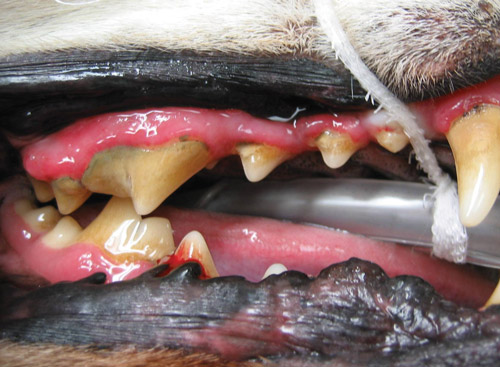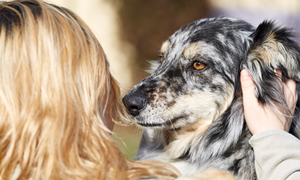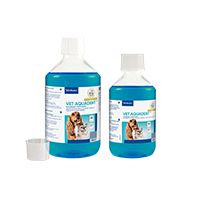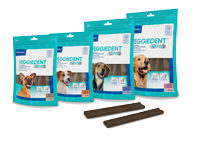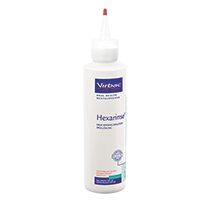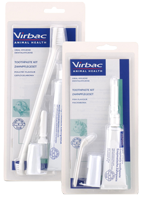
What is Periodontal Disease?
‘Periodontal disease’ is a collective term for several inflammatory conditions in the mouth. It is surprisingly common in dogs and cats with studies showing that more than 70% of cats and 80% of dogs over three years old* are suffering from some form of it. Periodontal disease is caused by a build-up of plaque and tartar on the teeth and gums. The most common conditions are:
Gingivitis – this is caused by plaque bacteria which colonise the space between the teeth and the gum, causing inflammation. It is generally reversible with treatment
Periodontitis – if left untreated, gingivitis can develop into this more serious condition which can cause irreversible damage.
Periodontal disease starts when plaque and bacteria accumulate on the teeth of dogs and cats. Over time, if they are not removed, disease-causing bacteria start to attach themselves to the plaque. This causes inflammation that in time, results in gingivitis. Meanwhile, some of the plaque calicifies into a substance called calculus or tartar – which is usually a light brown colour. This sticks to the teeth and can even cover the whole tooth, allowing more bacteria to lodge on its porous surface, together with food debris. Bad breath can be caused by volatile sulphurs released by the bacteria.
As the gums become inflamed, the gap between the tooth and the gum margin becomes deeper. This just adds to the problem as yet more bacteria find their way in and the problem worsens. At this stage, gingivitis is usually painful but reversible with treatment to remove the plaque and calculus. If it’s not treated, it can transform itself into the more serious condition of periodontitis. Not all dogs and cats develop this condition but, for those that do, it can only be resolved by veterinary treatment as they may develop abscesses, lose teeth or suffer from other oral problems.
For further information on how you can keep your pet’s mouth healthy, contact your vet or vet nurse.
* American Veterinary Dental Association research
